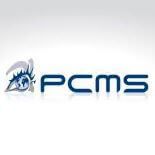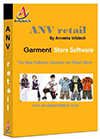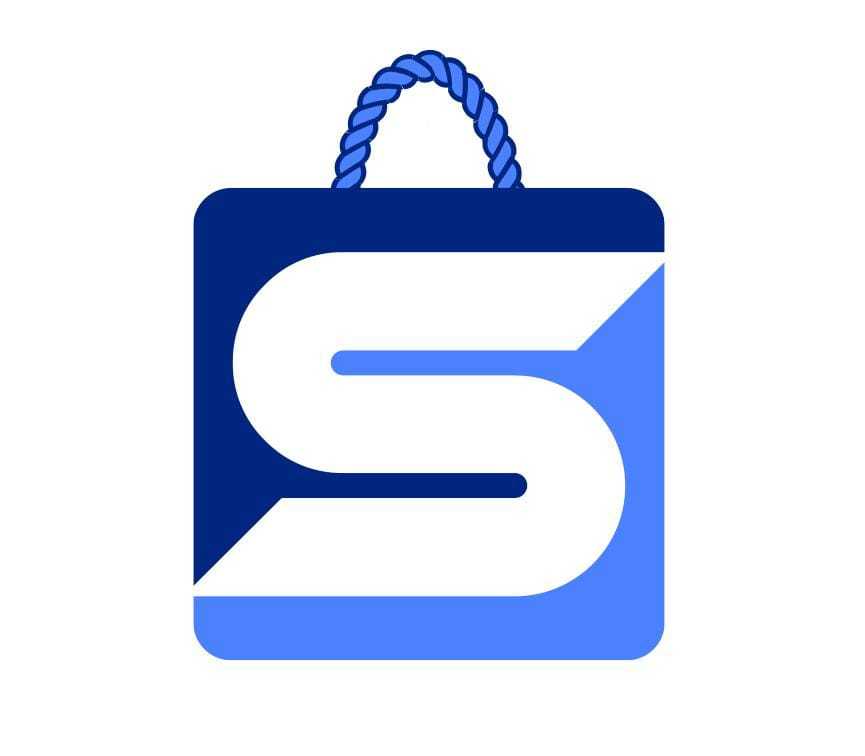Description

PCMS Retail

Yoobic
Comprehensive Overview: PCMS Retail vs Yoobic
To provide a comprehensive overview of PCMS Retail and Yoobic, let's break down the different aspects as requested:
1. Primary Functions and Target Markets
PCMS Retail:
a) Primary Functions:
- PCMS Retail focuses on providing point of sale (POS) software solutions, specifically targeting the retail sector. Their VISION Commerce Suite enables omnichannel retailing by integrating POS, order management, and customer experience management.
- The suite offers features like real-time inventory management, customer engagement tools, loyalty program integration, and analytics.
b) Target Markets:
- PCMS Retail primarily targets large and mid-sized retailers who require robust omnichannel capabilities.
- Sectors include grocery, fashion, department stores, and specialty retail.
Yoobic:
a) Primary Functions:
- Yoobic is a mobile-first platform aimed at improving operational efficiency and employee productivity through task management, communication, and training.
- It offers functionalities such as task execution tracking, collaborative communication, performance analytics, and mobile learning solutions.
b) Target Markets:
- Yoobic’s solutions are designed for frontline teams across various industries such as retail, hospitality, and facilities management.
- It primarily targets companies with distributed workforces who need a streamlined way to manage and communicate with employees.
2. Market Share and User Base
PCMS Retail:
- PCMS has a strong foothold in the retail sector due to its comprehensive POS and omnichannel solutions.
- It competes with other enterprise-level POS systems providers and has substantial penetration in large retail chains.
- Market share specifics can vary, but PCMS is recognized for its specialized expertise in large retail operations globally.
Yoobic:
- Yoobic is growing quickly, particularly in sectors that have traditionally relied on manual operations and are looking to digitize processes.
- It has a significant user base among retailers, as well as expanding traction in industries with large, non-desk workforces like logistics.
- As an emerging player in operational digitalization, its market share is growing as more companies adopt mobile-first solutions for workforce management.
3. Key Differentiating Factors
PCMS Retail:
- Specialization in Retail POS: PCMS stands out with its comprehensive suite tailored specifically for omnichannel retail operations, offering deep integrations with existing retail systems.
- Enterprise Focus: The solutions are built for scale, catering primarily to large retailers with complex operational needs.
Yoobic:
- Mobile-First Approach: Yoobic differentiates itself with a platform designed primarily for mobile, making it highly adaptable and user-friendly for on-the-go employees.
- Focus on Employee Engagement: Beyond operational efficiencies, Yoobic emphasizes enhancing communication, engagement, and training for frontline employees.
- Industries Served: While PCMS is heavily retail-focused, Yoobic caters to a broader range of industries, leveraging its platform for diverse operational contexts.
Conclusion
PCMS Retail and Yoobic serve different purposes and markets within the retail and broader business ecosystem. PCMS excels in omnichannel retail solutions with a focus on POS and large enterprises, while Yoobic addresses operational challenges through mobile-first tools aimed at improving frontline productivity across various sectors. Their differentiation primarily lies in the scope, user interactivity, and specific industry focus of their solutions.
Contact Info

Year founded :
Not Available
Not Available
Not Available
Not Available
Not Available

Year founded :
2014
+44 20 3621 5233
Not Available
United States
http://www.linkedin.com/company/yoobic
Feature Similarity Breakdown: PCMS Retail, Yoobic
To provide an accurate feature similarity breakdown for PCMS Retail and Yoobic, I'll summarize based on typical functionalities these platforms possess, as of the latest data available:
a) Core Features in Common:
Both PCMS Retail and Yoobic cater to the retail industry with the following common features:
-
Omnichannel Capabilities: Both platforms likely support seamless integration across online and offline channels to ensure a consistent customer experience, though PCMS is more traditionally focused on point-of-sale aspects.
-
Inventory Management: They provide tools to manage inventory effectively, though PCMS focuses on more intricate in-store logistics and inventory updates.
-
Analytics and Reporting: Both services offer analytics to help businesses understand customer behavior and performance metrics.
-
Employee Management: Yoobic is known for workforce optimization, but PCMS Retail also makes basic provisions for staff management in a retail context, though not as advanced.
-
Customer Engagement Tools: Both platforms offer features to enhance customer interaction, such as loyalty programs and targeted promotions.
b) User Interface Comparison:
- PCMS Retail:
- Generally has a more traditional retail management interface, designed for POS systems and back-office management.
- Interface may be more focused on functionality rather than aesthetic, aligning with complex retail operations.
- Yoobic:
- Designed with a mobile-first approach which makes it more modern and intuitive.
- User-friendly design geared towards frontline employees, emphasizing ease of use, speed, and accessibility.
- More visually interactive, with checklists, cameras, and interactive guides prominent in its interface.
c) Unique Features:
-
PCMS Retail:
- Strong emphasis on point-of-sale excellence. It's adept at complex checkout processes and integrates extensively with traditional retail systems.
- Extensive customization capabilities for different types of retail environments.
-
Yoobic:
- Unique focus on operational excellence through a digital workplace for frontline employees.
- Offers task management, learning systems, and communication functionalities tailored for workforce efficiency.
- Enhanced mobile capabilities for real-time task updates and communication, aligning more with improving employee engagement and operational management rather than traditional retail management.
Both products serve in the retail industry but cater to slightly different aspects of the business operation spectrum, making them complementary to each other in various retail settings.
Features

Store Operations
Employee Management
Customer Engagement
eCommerce

Employee Training
Customer Engagement
Operational Efficiency
Data Insights
Best Fit Use Cases: PCMS Retail, Yoobic
PCMS Retail and Yoobic are both software solutions designed to support retail operations, but they cater to different needs and can be best utilized in varying scenarios. Here's a description of the best fit use cases for each:
PCMS Retail
a) Best Fit Use Cases for PCMS Retail:
-
Large Retail Enterprises: PCMS Retail is an ideal choice for large retail chains and enterprises that require comprehensive point-of-sale (POS) solutions. Its ability to handle complex transactions, integrate with various systems, and support omnichannel retail experiences makes it well-suited for extensive operations across multiple locations.
-
Department Stores: It can be beneficial for department stores needing a robust system to manage diverse product lines and customer interactions across numerous departments.
-
Grocery Chains: Given its scalability and integration capabilities, grocery retailers can benefit from PCMS Retail, leveraging features like pricing updates, promotions, and customer loyalty programs seamlessly across all store branches.
-
Retailers Focused on Omnichannel Solutions: Businesses that need to unify their in-store, online, and mobile shopping experiences will find PCMS Retail advantageous as it integrates different channels to provide a seamless customer journey.
Yoobic
b) Best Fit Use Cases for Yoobic:
-
Retail Operations and Task Management: Yoobic excels in scenarios that require efficient task management, employee engagement, and communication solutions within retail settings. It is best suited for retail businesses focusing on optimizing store operations and improving staff performance.
-
Field Teams: Businesses with remote or field teams can utilize Yoobic to ensure consistent communication and task coordination, ensuring that brand standards and operational procedures are consistently upheld across all locations.
-
Training and Development in Retail: Yoobic provides robust learning and development tools, which makes it ideal for retailers looking to train their staff effectively, especially those with high staff turnover or extensive product lines requiring detailed training.
-
Project Management in Retail Settings: For businesses managing multiple projects concurrently across their retail locations, Yoobic offers the tools necessary for streamlined project oversight.
Catering to Different Industry Verticals or Company Sizes:
PCMS Retail:
-
Industry Verticals: It primarily caters to sectors like fashion, grocery, and department stores where POS applications, transaction handling, and customer experience management are crucial.
-
Company Sizes: Best suited for medium to large-sized enterprises due to its scalability and ability to handle complex systems and integrations across numerous locations.
Yoobic:
-
Industry Verticals: Though mostly used in retail, it can be adapted to hospitality and food service industries for operational management and staff communication.
-
Company Sizes: Flexible in supporting both small to medium-sized businesses and larger corporations, especially those requiring operational efficiency and employee engagement tools.
In conclusion, PCMS Retail is an excellent choice for large retailers looking to unify complex retail operations across multi-channel environments, whereas Yoobic serves well for businesses aiming to streamline operational tasks, enhance internal communication, and improve staff training and engagement.
Pricing

Pricing Not Available

Pricing Not Available
Metrics History
Metrics History
Comparing teamSize across companies
Conclusion & Final Verdict: PCMS Retail vs Yoobic
To provide a conclusion and final verdict on PCMS Retail and Yoobic, it's important to assess several aspects, including their features, pricing, user experience, and overall value. Here’s a comprehensive analysis:
a) Best Overall Value
PCMS Retail and Yoobic cater to different aspects of retail management, offering distinct value propositions. PCMS Retail is primarily a retail management system focusing on point-of-sale (POS), supply chain, and customer engagement solutions. Yoobic is more of an operational platform aimed at enhancing communication, task management, and training within retail environments.
-
PCMS Retail may offer better overall value for retailers looking for a comprehensive POS and supply chain management system. If your primary need is to efficiently manage in-store operations via POS systems, inventory control, and insights on customer purchase patterns, PCMS Retail could be more beneficial.
-
Yoobic might provide better value for retailers seeking to enhance store operations and staff coordination. Its strength in mobile task management, internal communication, and employee training makes it ideal for businesses focusing on optimizing workforce productivity and operational efficiency.
b) Pros and Cons
PCMS Retail:
- Pros:
- Comprehensive retail solutions covering POS, supply chain, and customer management.
- Strong integration capabilities with other retail systems and platforms.
- Offers deep insights and analytics for decision-making.
- Cons:
- May require significant investment in terms of implementation and customization.
- Depending on the complexity, it might have a steeper learning curve.
Yoobic:
- Pros:
- User-friendly interface focused on mobile-first task and communication management.
- Excellent for training and engagement of frontline employees.
- Quick deployment with swift adoption by store teams.
- Cons:
- Primarily focuses on operational efficiency, which might not cover all retail management needs.
- Limited in-depth retail analytics compared to dedicated POS systems.
c) Recommendations
When deciding between PCMS Retail and Yoobic, consider the following:
-
Evaluate Your Needs: If comprehensive POS and backend retail solutions are critical for your operations, PCMS Retail might be the better choice. For enhancing employee engagement and task management, Yoobic could be more suitable.
-
Budget Considerations: Analyze the total cost of ownership, including implementation, training, and operational costs. PCMS may require a higher upfront investment compared to Yoobic, which might appeal to those with budget constraints.
-
Integration Requirements: Consider how each product will integrate with your existing systems. This is critical for seamless data flow and leveraging existing IT infrastructure.
-
Scalability and Flexibility: Look for platforms that can grow with your business. Assess whether they can adapt to the changing needs of your operations.
-
User Feedback and Case Studies: Review testimonials and case studies from retailers in your sector to gauge satisfaction and real-world performance.
Ultimately, the decision should align with your specific business requirements, goals, and resources. In some cases, using both systems in a complementary manner might even be viable, leveraging PCMS Retail for transactional processes and Yoobic for operational efficiencies.
Add to compare
Add similar companies




